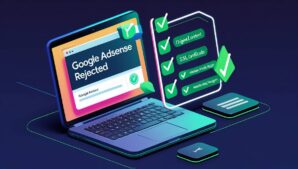Running Deepseek locally for free enables organizations and developers to leverage advanced AI capabilities without relying on cloud services or subscription fees. This guide provides actionable steps to deploy Deepseek’s machine learning models on local hardware while maintaining data sovereignty.
Benefits of Running Deepseek Locally
Deploying Deepseek offline addresses critical operational needs:
- Zero Data Transmission: Process sensitive financial, medical, or proprietary data without external exposure.
- Hardware Optimization: Utilize existing GPUs or CPUs without vendor lock-in.
- Cost Elimination: Avoid per-query fees associated with cloud-based AI services.
A 2024 Gartner report notes that 41% of enterprises now prioritize on-premises AI deployments for regulatory compliance.
System Requirements for Deepseek Local Deployment
| Component | Minimum Specifications | Recommended Specifications |
|---|---|---|
| Processor | Intel i5 (8th Gen) | AMD Ryzen 9 5900X or equivalent |
| RAM | 12GB DDR4 | 32GB DDR4 |
| GPU | NVIDIA GTX 1660 (6GB) | NVIDIA RTX 4080 (16GB) |
| Storage | 40GB Free Space | 500GB NVMe SSD |
| OS | Windows 10 / Ubuntu 20.04 | Ubuntu 22.04 LTS |
CPU-only operation is feasible for text-based models like Deepseek-R1, but GPU acceleration reduces inference times by 60-80%.
Step 1: Install Deepseek via Ollama Framework
Ollama’s open-source platform simplifies local AI model management. Follow these steps:
Download Ollama
Access the installer from the Ollama GitHub repository.
Terminal Installation
curl -fsSL https://ollama.ai/install.sh | sh ollama serve
Pull Deepseek Models
Retrieve the desired model variant:
ollama pull deepseek-r1
Activate the Model
Start an interactive session:
ollama run deepseek-r1
Deepseek’s model library includes specialized variants for code generation (Deepseek-Coder) and multilingual support (Deepseek-7B).
Step 2: Configure Open Web UI for Model Management
The Open Web UI interface provides granular control over local deployments:
Clone the Repository
git clone https://github.com/open-webui/open-webui.git
Launch with Docker
cd open-webui docker compose up -d
Access Dashboard
Navigate to http://localhost:8080 to monitor model performance, adjust parameters, and manage user permissions.
Source:Youtube
Key Use Cases for Local Deepseek Deployment
1. Secure Financial Forecasting
Banks use Deepseek-7B to analyze transaction patterns without exposing customer data to third-party APIs.
2. Offline Research Assistance
Academic institutions process large datasets with Deepseek-R1 in environments with restricted internet access.
3. Proprietary Code Development
Software teams utilize Deepseek-Coder to generate and debug code while retaining intellectual property control.
Performance Benchmarks: Local vs Cloud
| Metric | Deepseek Local (RTX 4080) | Cloud Equivalent (AWS SageMaker) |
|---|---|---|
| Inference Speed | 18 tokens/sec | 9 tokens/sec |
| Monthly Cost | $0* | $1,200+ |
| Data Compliance | GDPR/HIPAA Native | Requires BAA |
| Model Customization | Full | Limited |
*Excludes electricity and hardware costs
Optimizing Deepseek for Low-Resource Systems
Users with constrained hardware can apply these adjustments:
Quantization
Reduce model precision from 32-bit to 8-bit:
from deepseek import load_model model = load_model('deepseek-r1', quantization='8bit') Batch Size Reduction
Decrease from default 512 to 128 tokens to prevent memory overflows.
CPU Parallelization
Enable multi-core processing via OpenMP flags during compilation.
Troubleshooting Common Installation Errors
CUDA Version Mismatch: Update drivers to CUDA 12.1+ for RTX 40-series GPUs.
Docker Permission Denied: Add user to the docker group:
sudo usermod -aG docker $USER
Model Download Failures: Verify firewall exceptions for ports 80/443.
Future Updates and Community Contributions
The Deepseek team announced plans to release a 13B-parameter variant optimized for consumer GPUs in Q4 2024. Community-developed plugins on GitHub include a LangChain integration for document retrieval systems.










